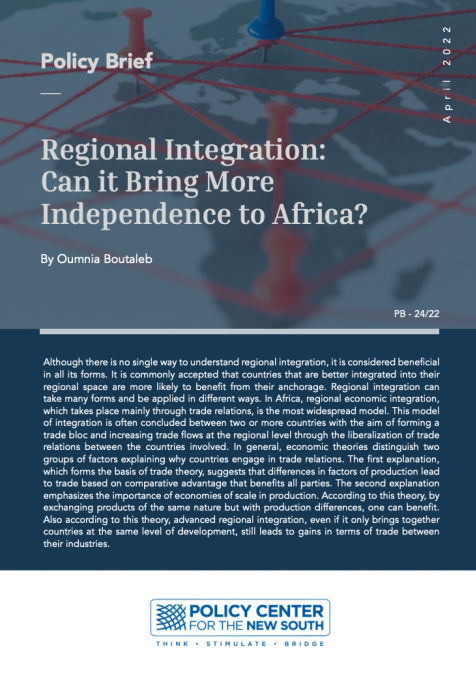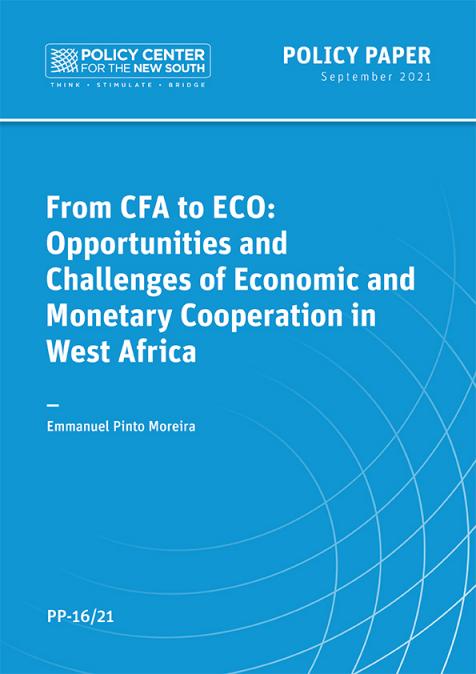Publications /
Opinion
The 16th Annual Global Development Conference has been dedicated this year to the theme of ‘Agriculture for Sustainable Growth: Challenges and Opportunities for a New ‘Green Revolution’. One of the sub-themes that has been addressed during this event is related to the design of the optimal agricultural policy supposed to lead towards development, especially in low-income countries. The objective of this blog is to cover the key elements that make an agricultural policy successful and how this latter contributes to sustainable development.
Increasing awareness of the importance of agricultural policies at the international level but also within local authorities:
The soaring food prices since 2007 and their implication on well-being, especially in developing economies, has oriented the international community on a subject that has been neglected for a long time: food security and the optimal response of worldwide stakeholders. In fact, the United Nations have launched “Sustainable Development Goals” concept in 2012 within the Rio+20 conference. The objective was to formalize universally applicable targets that bring together three dimensions of sustainable development “environment, social issues, and economic challenges». At a worldwide level, this initiative aims to federate efforts of governments, international organizations and civil society, in order to address the main issues and new challenges facing peoples worldwide. Food security and poverty issues have made their way to the top of the international agenda, consequently creating a commitment by the United Nations to eradicate hunger worldwide, improve nutrition, and promote sustainable agriculture.
In fact, agriculture policies are taking up the center stage of local governments’ concerns, not only in developing countries, which seem more vulnerable to this issue, but in developed countries as well. The European Union’s Common Agriculture Policy, for example, aims to provide enough high quality food to Europeans in a sustainable manner and in accordance with the commonly accepted standards, in terms of environment protection. Southern African Development Community (SADC) is effectively engaged in insuring a reliable access of their citizens to adequate food. The challenges for these low-income countries are amplified in a context of climate change, lack of highly qualified human capital and a labor-intensive production process. The Comprehensive African Agricultural Development Programme (CAADP) launched in 2003 by the African Union, is set to upgrade the agriculture sector in the region, with a key goal of raising productivity by at least 6 % per year. Pursuing this objective comes, among other things, through agricultural research, technology development and dissemination, and better coordination among agricultural institutions in the region.
Targeting the well-being of farmers, upgrading production process and adapting agriculture to climate change: pillars of a successful agricultural policy.
Farmers, as “producers” of food security, should be at the center of all policy decisions, and their well-being should be considered as a pillar in any agricultural policy. This latter should enable farmers’ families, especially smallholders, to increase their income but also diversify their production in a highly uncertain food market. In the African continent, the agriculture sector is the primary source of livelihood for more than half of the population in Sub-Saharan Africa (SSA), accounts for almost one third of GDP, and represents an even bigger share of export earnings. The United States on the other hand, has an agricultural sector that contributes to less than 2% of GDP and employment. The predominance of agriculture activities makes the issue challenging for the SSA, as it needs to ensure sustainable growth of the agriculture sector while avoiding impeding upon the farmers’ source of income. In the SSA, the agriculture sector is undercapitalized, with capital per employee being much less than in other developing regions.
In a study, the OECD stresses that policymakers need to realize that upgrading the agricultural production process would come at the expense of job creation in the sector, leading many smallholder farmers to leave the agricultural sector. Governments should be facilitating this economic transformation and supporting adjustments that allow labor to be pulled – not pushed – out of farming. This leads to the conclusion that agricultural policy cannot stand on its own; it has to be comprehensive, with the implementation of education and social service policies that could eventually lead to an efficient agricultural sector.
Research and Development in agriculture, especially in the developing world, is the key factor to any improvement in productivity, and the resulting policies. Studies have clearly shown the positive effects of agricultural research and development (R&D) on agricultural innovation and productivity patterns. These productivity gains have not only resulted from capital accumulation, but also from technological change. Given the importance and impact of R&D, it would be fair to argue that there should be a shared responsibility between the public and private sector in terms of investment in this activity. Public spending is a key element in promoting R&D, leading to the conclusion that partnerships between the private and public sector are prone to a successful outcome.
Given this broad vision, agricultural policies will have to expand their perspectives beyond the farm unit, and develop efficient business models that take into consideration the comparative advantage of each stakeholder in the value chains. Within this understanding, farmers should focus on the physical production of agricultural products, while research and development, trade and financing should fall within the hands of experts in the respective fields, in order to optimize the production and consumption of resources.
Climate change represents another reason why new technologies should be considered in the production process, as these new techniques enable the sector to reinforce its resilience to extreme events and the increased unpredictability of weather patterns. Climate change would have serious implications over levels of production, prices and incomes in vulnerable areas. This is why in order to achieve ultimately the well-being of people, production systems should be adapted to be more productive, optimized, and efficient. The FAO has launched a new concept of “Climate-smart agriculture» aiming to reach three objectives (FAO definition):
- Sustainably increasing agricultural productivity and incomes;
- Adapting and building resilience to climate change;
- Reducing and/or removing greenhouse gases emissions, where possible.
Achieving food security requires the shaping of a suitable trade policy.
The success of any agricultural policy does not imply systematically building a domestic agricultural sector that achieves self-sufficiency in food production. Trade policies are of major importance, as they are intricately tied to agricultural policies. Export-oriented sectors are a key source of foreign reserves and income-earning opportunities, especially for low income economies, while imports are critical to nutritional and stability dimensions of food security, in a world where self-sufficiency is not advocated anymore, and where strong economic integration is dominating.
Thus, national agriculture policies need to be conceived within a regional perspective but also with a transcontinental dimension. Reinforcing integration would therefore induce an incentive to the domestic producers to modernize their agriculture sector in order to have access to international markets. However, this integration should not be achieved at the expense of small farmers, which is the predominant form of agriculture organization in the developing economies. The accessibility of multinational companies with the best production process standards to local markets should be analyzed from two viewpoints. First, these companies should not have free access in order to protect local farmers from highly competitive products, but also local consumers should benefit from these productivity gains and have access to competitive food products. Besides, the subsidizing policy led by developed economies can seriously jeopardize the effectiveness of developing engagement to upgrade their agriculture sector, and consequently present a source of “unfair competition”. To overcome these complex issues, trade agreements should consider these aspects to ensure sustainable trade and agriculture policies, for the developing economies and the rest of the world as well.
Achieving all these objectives would spare any nation from political unrest. Evidence suggests that lack of food security resulting from an external shock could lead to political instability. Food-related protests, often known as “food riots” have surged since 2007 in many countries where vulnerability linked to food prices increased. Therefore, the optimal agriculture policy that aims to insure access of citizens to food with high quality, eradicate vulnerability among farmers, promote R&D and innovation to enhance productivity, adapt the production systems to climate change and promote trade integration, is expected to lead to the development process of any nation.
Overall, the challenges faced by agriculture in sustainable development is the conciliation between “Economic viability, social equity and ecological sustainability”.










